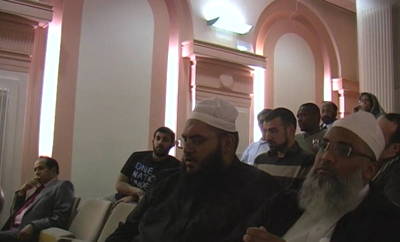

So let me say a little bit about this term modernist Islam which some people have found a bit problematic. Sometimes, people have used 'modernist Islam' to talk about the kind of developments which were taking place in the late nineteenth and early twentieth century, in countries such as Egypt, Turkey and India. We're using it in a rather wider sense, so it's including quite a few different things here. It's including
Now the reason why I think it makes some sense to have some sort of global label of 'modernist Islam' is that all of these people are not just accepting traditional forms of Islam from the past in an automatic way, or accepting Western secular culture. They are consciously choosing an Islamic identity within the present day world, they are seeing Islam as something which is very much relevant to today, rather than just something that you do because it has been handed down from your parents, and I think that is a key element.
So these are people, whether they are going to traditional modes of interpretation or more modern modes of interpretation, they are thinking them through in terms of the present day, and that is very much a characteristic of many of the people to whom we have been talking.
A little bit about how we did the research: as I said this was really an anthropological approach so although we used focus groups as a way of getting a group of people together and having a discussion, and we had individual interviews which tended to be unstructured or semi-structured, where possible we tried to interview people several times and to get to know them over a period of time, we used participant observation, we went along on various activities, spent time with families, with their families and friends if we could. So the aim was to get to know people fairly well, and obviously some people we got to know better than others, but this is not the kind of research where you have a multiple-choice interview and you just go down and tick the boxes - it's much more trying to get to know people and to understand how they feel and so on.
Our focus has mainly been on young people who have joined Islamic organisations, or become seriously involved in Islamic practice in other ways. But we have also spoken to some young people who are less involved in religion and who are living a more secular life style because we felt that they were also part of the picture. We've also spoken to a variety of other people, Islamic leaders and spokespeople for various positions, and people who were part of the wider scene that we were looking it, family members and so on - so there wasn't a strict line around who were talking to.
We tried to get a pretty wide sample but I think I would have to say that most of the people we were talking to were from middle-class educated and urban backgrounds. The UK sample were mostly people who were second generation or brought up in the UK. I think this is something to do with the kind of thing we were looking at, as well as the nature of young people in the UK in the community.